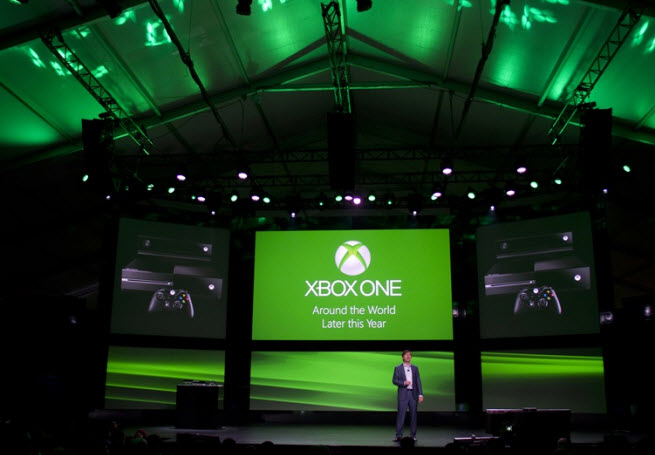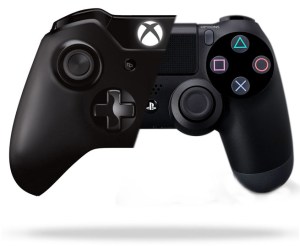
With Microsoft’s announcement of the Xbox One this week, the slate of consoles for the next generation has become a known quantity. Each major game console maker has revealed its strategy, and game industry veterans can now weigh in on who has the best plan. But the competition in games isn’t limited to just the consoles anymore. Mobile devices, the PC, and a host of Android-based devices are hitting the market at the same time.
We asked what some smart folks in the game industry thought about who was going to win the game platform war, now that the chips are on the table. The question was simple: who will win? Among the choices we gave them were: Nintendo Wii U, Sony PlayStation 4, Microsoft Xbox One, Ouya, Android, iOS, the PC, and Other. Here’s some of our responses. Please comment on your own favorite and explain why. And please take the poll at the end.
The real answer, of course, is that consumers are going to win. But first, they’ll have to sort out a variety of factors that include price, launch timing, game costs, other services, backward compatibility, cross-platform play, used game rights, always-connected to the Internet, and the best games.
Chris Petrovic, former head of GameStop Digital Ventures
Of course, the right answer should be that the consumer looks best in that there have never been more compelling platforms on which to game then what we now have – just look at the list!
I really don’t see this as a binary answer. Each of these platforms can and will capture a meaningful share of consumers share of time and wallet. There seems to be general consensus in the game industry that it will continue to follow the ebbs and flows of its media brethren — movies, TV, etc. — in that the incumbent platforms will still provide the richest, most immersive premium experiences for the enthusiast while the newer platforms will appeal to the masses because they win on price and convenience.
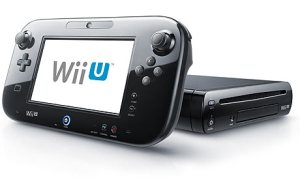
As it relates to the competitors within each sector, Nintendo has lost the living room and should focus on opening up its IP to third party platforms. As between Microsoft and Sony, the one that has the best exclusive content will win. Free-to-play models will not work because the platforms are not conducive to indie developers and also because discovery will be a problem along the lines of what we see in mobile.
And as between Apple and Google, Google will win because of its market share and also because it has a better chance of solving content discovery.
Dennis Fong, chief executive of video game social network Raptr
The days of a gaming-only device are numbered, given the rise of smartphones and tablets as viable gaming platforms. So with that in mind, i think Microsoft is better positioned than Sony for the future. Microsoft has added some really cool features to make it a lot more useful and interesting in the living room.
That said, content is king. Since both MS and Sony have great exclusive games, neither will be going away any time soon. Microsoft did lock up some strong exclusives on the nongaming side though, such as the NFL, which should pay dividends in the future.

Ubisoft
It’s impossible to say whether Sony or Microsoft has the “edge,” as both consoles boast their own distinguishing features and will appeal to consumers for different reasons – for example, Microsoft has integrated the next Kinect technology into the console, which provides players a new interactive experience. Meanwhile, Sony proposes a seamless experience for all PS4 games in the Vita. These two different approaches will appeal to different types of gamers. And as developers, we’re excited about the potential both machines hold.
Tim Chang, managing director at Mayfield Fund and investor in game companies such as Ouya
On the record: I’m super-bullish on the new Xbox – they have so much buzz, momentum, and cool new features going for them that I think they’ll continue to pull ahead of Sony PS4. [There will be] some cool new titles for Sony PS4 for sure, but the battle going forward is going to be about connected functionality and cloud-driven services in addition to what hot new exclusive titles you can launch with and how much eye candy they pack.
iOS will keep innovating interconnectivity between phone, tablet, and TVs, so we’ll see tablet-plus connected TV gaming converging. Android will try to keep up, but the Bluetooth SW stack for native Android as well as the fragmented implementations by Samsung and other OEMs are actually a major hindrance for getting next-gen controllers to pair and communicate over BT. …
And of course I’m bullish on Ouya helping to drive a renaissance for indie developers – like the way XBLA, Steam, etc., should have been.
The promise of cloud gaming is still pretty cool, especially if it allows for great PC online titles like Eve, World of Warcraft, World of Tanks, Minecraft, etc., to be played on tablets and TVs

David Cole, analyst at DFC Intelligence
Overall, there has to be some concern that Microsoft is biting off more than they can chew. With no backward compatibility, the Xbox One is starting from scratch. Microsoft had a huge success with the Kinect, and that could be their downfall. The Kinect helped draw in a significant number of mainstream consumers. However, the Xbox brand resonated primarily with a core gaming group. Microsoft shouldn’t assume they that group will automatically stay around as they try and target the elusive mass market. Sony learned that lesson the hard way in the transition from the PlayStation 2 to the PlayStation 3. In the U.S., Microsoft has a major advantage but they could easily screw that up very quickly. We only need to look at Nintendo’s disastrous recent product launches for a lesson. This will be a marketing game and right now Sony seems to be winning.
Tim Merel, managing director at Digi-Capital
We believe the games market is splitting into “value” and “volume” markets. That prediction has not only come to pass but continues to accelerate dramatically. From platform, business model and geographic perspectives, we see more fundamental divergence than we did at that time. This has major implications across the entire games ecosystem (hardware, platforms, publishers, developers, enabling tech). We think that the coming 18 months will see even greater transformation than has gone before.
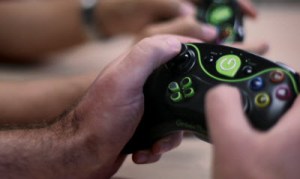
We continue to see the volume markets of high engagement, connected (mobile/tablet, iOS, Android, Over The Top [“OTT”]) and cross-platform (iOS, Android, OTT)/online [PC/web]) delivering long-term mass market growth. Despite (and partly because of) recent announcements, we see the value markets of console- and subscription-based MMO remaining large long term niches. [They are] till great places to operate, valuable, capable of producing great games companies and great games, but generally not on the same scale or with the same growth rates and profitability as the volume markets. Some of these value markets are trying to transform themselves into volume markets, and they may succeed in doing so despite the challenges. Naturally this is not absolute and there could be many exceptions.
Dan Fiden, partner at Signia Ventures
Nintendo is in a tough spot. They could have a terrific mobile business — now might be the time to consider building or licensing for iOS and Android.
This generation of game-focused hardware consoles will be smaller than the last, and fewer publishers will be willing to make $20 million bets on the blockbuster games that sell the hardware. Microsoft’s announcement indicates they’re not focused on insuring they retain the game hobbyist market. Their ability to retain them will say a lot about the power of players’ investment in affinity for the Xbox Live community.
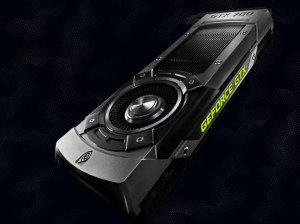 iOS and Android are the most important platforms in this generation: Penetration of the hardware is outstanding, they’re generally developer friendly partners, and the tablet’s potential as a gaming device is still largely untapped. Couple that with the possibilities around AirPlay, increasing mobile development budgets and corresponding increase in quality and depth, and migration of very talented core development teams to iOS and Android. There’s an argument to be made that the winners of this generation have already been decided.
iOS and Android are the most important platforms in this generation: Penetration of the hardware is outstanding, they’re generally developer friendly partners, and the tablet’s potential as a gaming device is still largely untapped. Couple that with the possibilities around AirPlay, increasing mobile development budgets and corresponding increase in quality and depth, and migration of very talented core development teams to iOS and Android. There’s an argument to be made that the winners of this generation have already been decided.
Ouya is a great story, but it will need to focus on building a brand and community for gamers — like Kongregate, or Humble Bundle combined with Xbox. The key is to become the Android game “channel” and to move away from participating in the brutal Android hardware refresh cycle. Hiring Kellee Santiago was a great move in this regard.
Jason Kay, principal at K2 Ventures
It seems safe to say at this point that Nintendo is likely to follow Sega’s lead in moving out of the hardware business and focusing on all of the amazing brands and games in their stable (Zelda, Donkey Kong, etc). It seems hard to fathom that the Wii U can ever recover, and it feels like the only portable business is the smartphone business.
Microsoft and Sony are are in a very tight race. I expect it will largely be a replay of 7th generation with both consoles selling well, and consumer choice most likely based on affinity and account transfer” rather than any one emerging a big winner. Microsoft clearly has a huge edge in the Xbox live architecture, subscriber numbers, and functionality, but but Sony looks strong and has some unique selling features like the cloud steaming system that could become game changers.”
I think that the PC will get stronger vs. the other two AAA consoles, but it probably has a ceiling because of price and the disintegrating PC marketplace vs tablet. There is an argument that tablet/laptop hybrids are going to take over. Perhaps that is true and then the line between these 3 and “mobile” below will blur quickly.
Android and iOS will continue to strengthen, with iOS in the premium segment and Android in a broader, value segment. The Android store should reach similar quality and ease of use to iTunes, if it hasn’t already, so that old advantages of a tighter payment loop of iTunes will disappear.
At some point, The ios and Android will reach dollar sales parity with the former three. Scary, but it seems inevitable. So by that measure, mobile probably “wins.” As you know, I think that happens as the games get PS3 level on tablet and the console pubs start porting down to tablet. There is a pricepoint question, though.
On Ouya: I’ve known Roy (Bahat, Ouya chairman) and Julie Uhrman (Ouya CEO) for a long time and am rooting hard for them. I think that its fair to say that I am excited for the launch and keeping my fingers crossed for great things. I think overall people want to call winners and losers way to early in the game.
——————————————–
Please take the poll below.
VentureBeat's mission is to be a digital town square for technical decision-makers to gain knowledge about transformative enterprise technology and transact. Learn More
